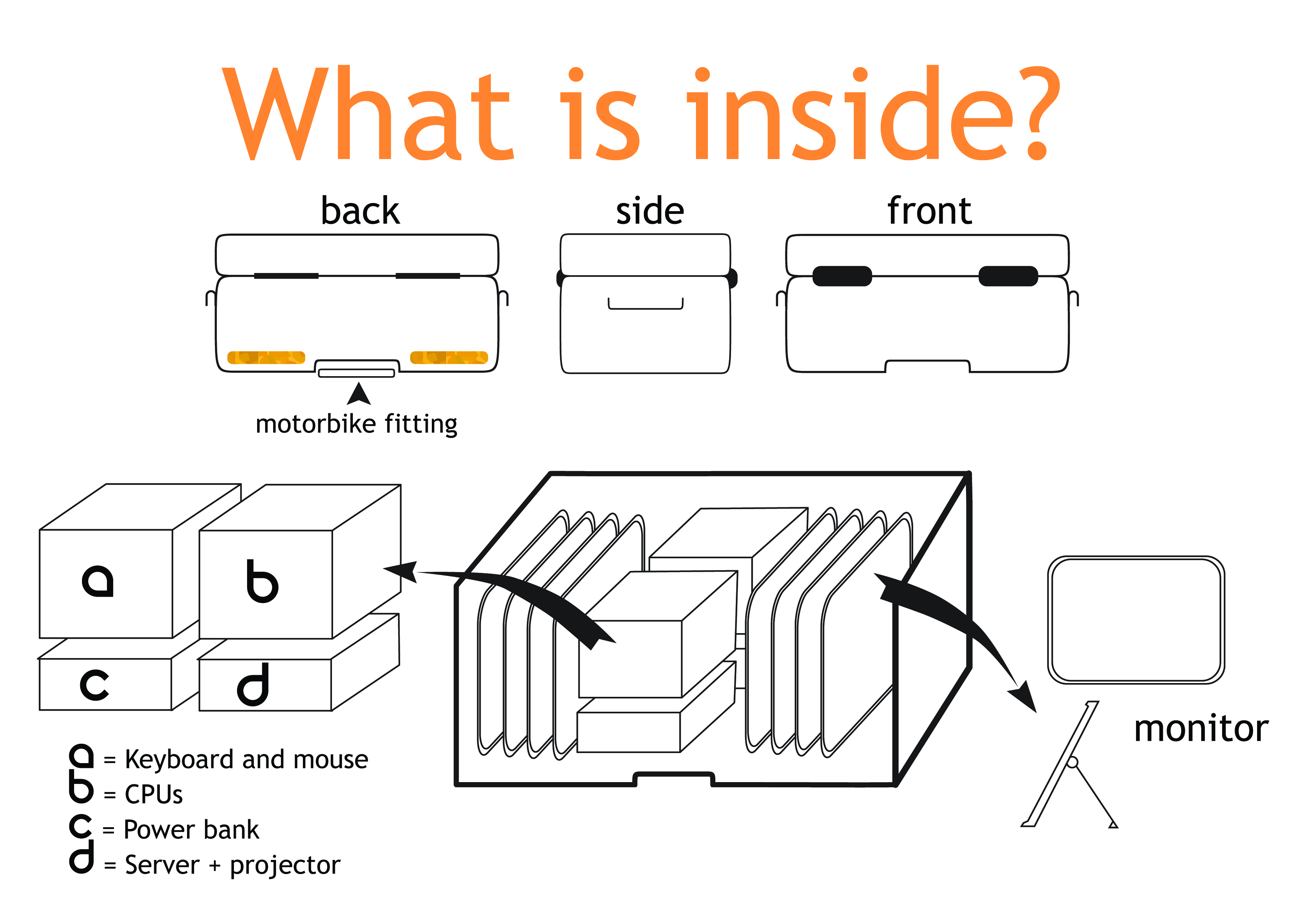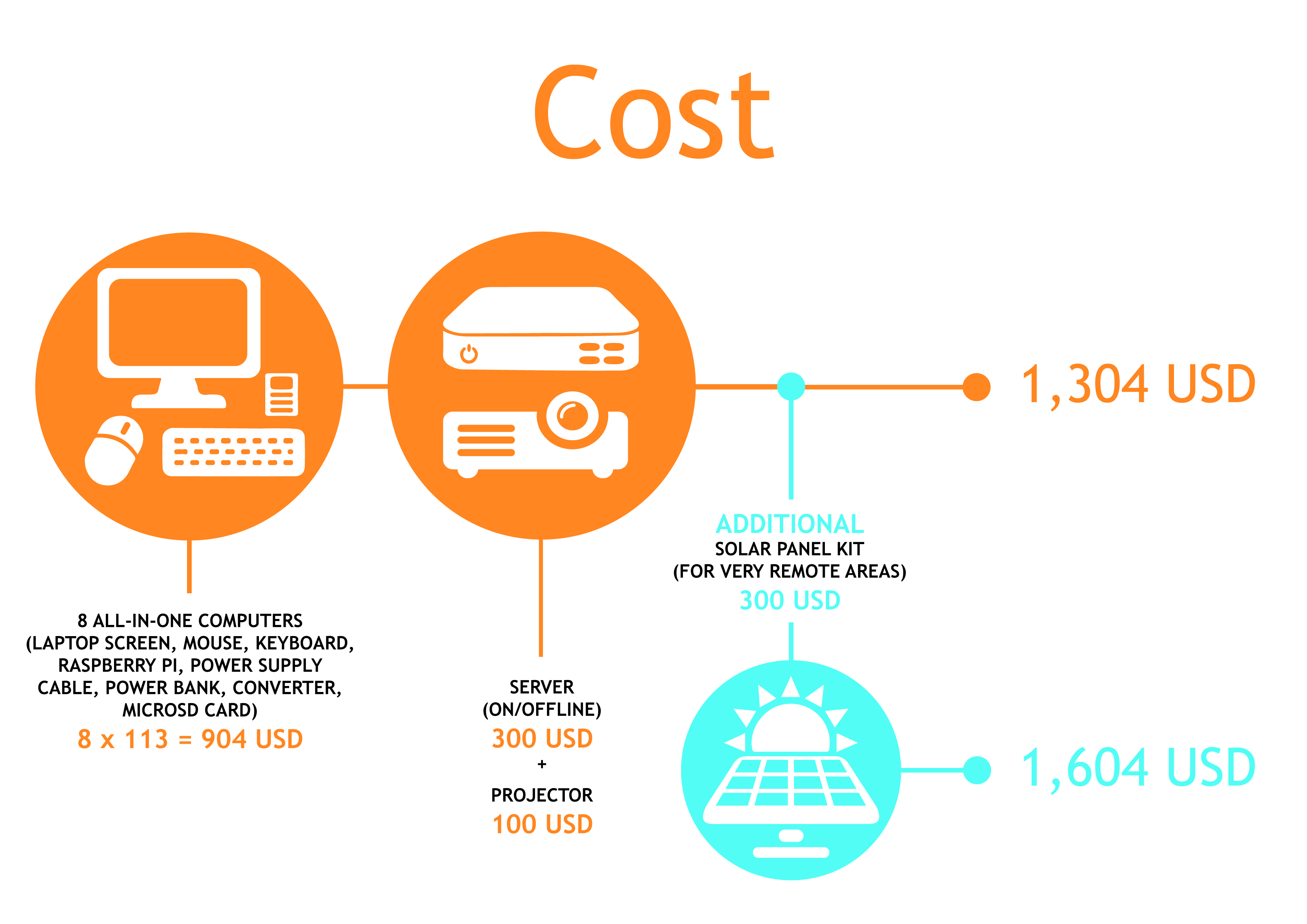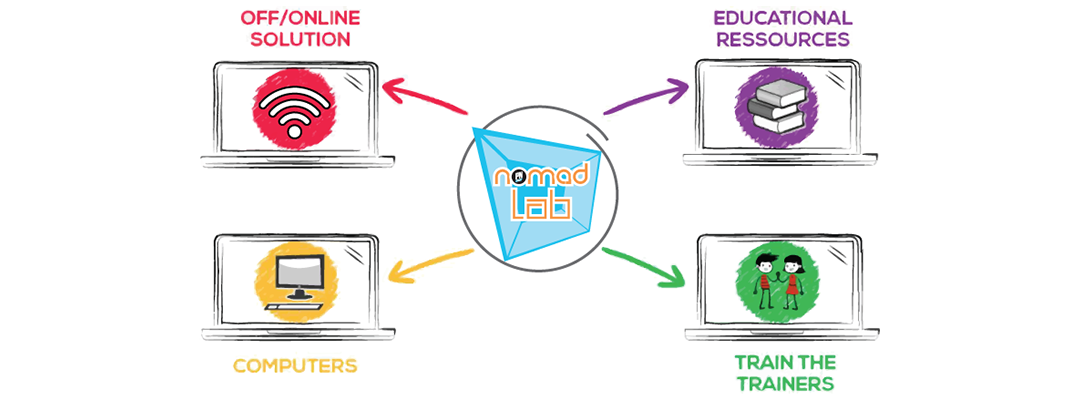Introducing NomadLab and Play4Gateway! Two projects using our 13 years of educational experience in Southeast Asia to tackle some of the most pressing development challenges of our time: bridging the digital divide and providing access to digital learning content for teachers and students alike.
Throughout our activities across Southeast Asia, PN has encountered numerous obstacles when it comes to reaching the most remote of our potential beneficiaries and bridging the last mile of educational content delivery. Access to digital learning resources and tertiary education have proven to be particularly complex challenges for underserved communities. Additionally, shifting public and individual donor trends towards social business-oriented projects and impact investing led PN to conclude that it is the right time to try and tackle today’s educational development challenges with complementary solutions.
While PN’s main focus remains on our core project – delivering vocational IT trainings in Cambodia, the Philippines and Vietnam for disadvantaged youth – we are designing so called satellite projects that use innovative approaches and technologies to provide equal educational opportunities for all. Two of them are described here: “NomadLab” addresses the problem of low teacher quality, insufficient ICT skills and a lack of access to ICT infrastructure which all seriously threaten the achievement of Sustainable Development Goal – SDG 4 as a recent UNESCO study found. “Play4Gateway” on the other hand is a game-based talent assessment approach which aims to eliminate socioeconomic factors from academic selection processes, providing fair, more equitable, accurate, human-centred and cost-effective solutions for underserved youth.
NomadLab
NomadLab is an easy-to-build, open source, inclusive and affordable mobile solution that not only allows PN to digitally include vulnerable communities and underserved populations but also enables us to significantly expand our reach. NomadLab targets underserved populations regardless of their financial status, gender and other prejudicial socioeconomic factors, ensuring their access to digital learning content.
The solution combines several components, making it a fully comprehensive approach to digital education delivery. NomadLab contains hardware as well as carefully selected and customised open source software to address infrastructure and human resource bottlenecks. Raspberry Pi-based computers with an on/offline server deliver the learning content to educators and students in remote areas. However, NomadLab does not simply provide a do-it-yourself tech solution because at PN, we believe that no technology, regardless of how advanced and well thought through, will ever be able to fully replace teacher-student interaction. The tech part of the solution will therefore be accompanied by a three-months train the trainer program during which experienced PN instructors will teach NomadLab educators in using the devices, selecting appropriate digital resources that match the students’ curricula and train them to perform basic maintenance procedures of the computers.
NomadLab will be transported in a shock-resistant box, built to withstand the climatic conditions of Southeast Asia and contains eight computers. Each of the eight computers included in one NomadLab Box can be used by two students simultaneously. As the Boxes are easily transportable, they can be rotated between different users in schools and communities, ensuring that up to 300 students can be taught with one NomadLab over the duration of a course. A video projector will further increase the numbers of students who are able to work with the lab and will transform rural classrooms into digital learning environments. A solar panel can be added for energy supply in extremely remote areas.

Low-cost and easily scalable, NomadLab is a comprehensive solution encompassing hard- and software components as well as a train the trainer program. The open source content and community mindset make it easily transferable to other geographies and it has the potential to empower educators worldwide. .

Play4Gateway
A key part of PN’s success is our selection process, which enables us to select disadvantaged, talented and motivated youth, for our programs. However, our process can still be even more optimized. Classical entrance examinations may reinforce a social bias as they usually validate the students’ ability to acquire knowledge through classic education models, which is directly linked to a student’s financial means and social status.
PN believes that gamified selection processes can objectively assess talents in a non-discriminatory way because they rely on shared, approachable, and somewhat universal mechanisms. PN aims to offer a solution that
- Selects appropriate games testing specific skills/talents
- Defines the “gamification script” to assess required IT skills for PN
- Establishes the relevance of this innovative assessment
- Is scalable for other trainings
Solutions for the 21st century
Both solutions can be shared widely – with other educational institutions, NGOs and even the corporate world – and therefore harbour the potential to be scaled within PN’s present geographical scope and beyond. PN is excited to join a community of entrepreneurs and participate in the exchange of best practices and lessons learnt with like-minded innovators who aim to find solutions for the biggest challenges of our time. We have been finalists of last year’s MIT Solve Challenge with Play4Gateway (Play4Gateway for MIT Solve) and are competing with our NomadLab solution in this year’s competition (NomadLab for MIT Solve).
PN is actively looking for partners to turn those solutions into reality. Come and join us on our journey and let’s make it happen together!

